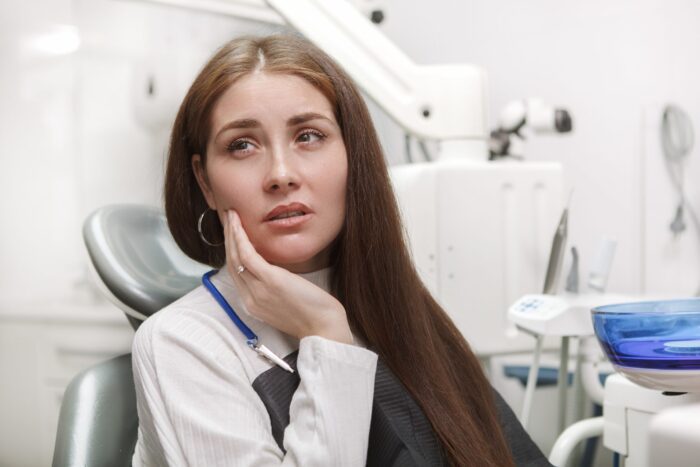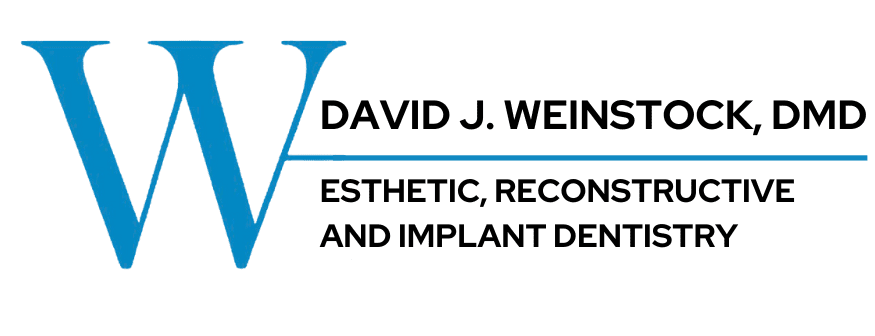Dr. David Weinstock offers emergency dental care services in the Philadelphia area at our Bala Cynwyd, PA, dentist’s office. This is an essential dental service that emergency dentist Dr. Weinstock provides to Philadelphia, PA, patients who need help today.
If you are experiencing a dental emergency, please call our office at (610) 667-2770.
Whether you are a new or a returning patient, our staff will do everything possible to see you the same day. If your emergency happens during business hours, contact our Bala Cynwyd dentist’s office to schedule an appointment.
If your emergency occurs after hours, please call the offices of Dr. David Weinstock and leave a voicemail. We will return your message as soon as possible and make every attempt to schedule your appointment the next day.
If you are experiencing excessive bleeding or pain, please call 911.

Emergency Dentistry FAQs
Dr. Weinstock will ensure you feel comfortable visiting his office for emergency dental treatment. There are many common dental emergencies to be aware of that can affect the comfort of your teeth and gums. Learn what to do at home during a dental emergency and how we can restore your oral health in our office:
What should I do if I have a dental emergency?
In the case of a dental emergency, call Dr. Weinstock’s office as soon as possible. Most dental concerns will become worse with time. Seeking treatment as quickly as possible will allow for the most conservative and effective treatment.
If you are experiencing a dire emergency, dial 911. Visit an emergency room for medical care first. Then, if you have dental and medical problems, you can visit our office. Once you are healthy, we can help treat your teeth and gums.
What should I do if my crown or filling breaks or falls out?
NEVER attempt to reach for your crown or filling by yourself. Do NOT glue your restoration back to your tooth. Contact our office so we can restore your dental crown or filling.
In many cases, we cannot reuse the restoration. If the restoration is broken or damaged, it will not reattach to your tooth. However, if it is possible to find the restoration, you can bring it to your dentist appointment. Dr. Weinstock can fabricate and fit you with a new dental restoration.
What should I do if I lose a tooth or a tooth gets knocked out?
Contact our dentist’s office immediately if your tooth has been knocked out. If possible, retrieve the lost tooth. Hold the tooth only by the crown and preserve as much of the root structure as possible.
Gently rinse the tooth in cool water. At the same time, it is okay to rinse the tooth and never scrub the tooth. As the ADA recommends, place the tooth in a cup of saliva to transport it to the dentist.
We may replace the tooth within one hour of loss. Dr. Weinstock recommends restorative care if he cannot rescue the tooth. He offers dental procedures such as implants, bridges, and dentures to replace missing teeth.
What should I do if I am having severe tooth pain?
A typical dental emergency is severe tooth pain. There is a whole range of dental concerns that cause toothaches. Tooth decay or an abscess may be the culprit.
Persistent pain should be addressed by Dr. Weinstock as soon as possible. At home, you can take pain medication to reduce your discomfort. If you are experiencing swelling, apply a cold compress to the affected area to reduce inflammation while you wait to see our dentist.
A root canal or extraction can often provide pain relief. If you have decay, we will remove it from your tooth. However, if you have extensive decay and we cannot save the tooth, we will recommend a dental extraction. Then, we can restore your lost tooth after a healing period.
What should I do if my denture or bridge breaks?
Often, we can repair a broken denture or bridge. If possible, bring the broken appliance with you to your dentist appointment. Do not try to place your denture or bridge back in your mouth.
Dr. Weinstock will assess the situation and help you to determine the best treatment plan. He may create a temporary restoration so you will not be without teeth. Then, he will plan a new, stable restoration.
How Can You Prevent Dental Emergencies?
Sometimes, you can prevent a dental emergency before it happens. Caring for and protecting your teeth and gums may prevent dental emergencies:
- Stop Bad Oral Health Habits: Crunching on ice, grinding your teeth, or using your teeth to open packages puts too much pressure on your enamel. You can chip or crack a tooth if you continue these habits. Refocusing anxious habits can protect your teeth and help keep you calm. Treating problems like teeth grinding with a nightguard can also save your teeth from further wear.
- Wear a Sports Mouthguard: If you play contact sports, you must wear a mouthguard. Custom-made sports mouthguards protect hits to the teeth and braces. Wearing a properly fitted mouthguard can prevent tooth damage and loss. Mouthguards can also prevent broken brace wires or brackets.
- Brush and Floss Properly: Many patients avoid flossing as a part of their oral hygiene routine. Flossing is vital to removing leftover food and bacteria between teeth. Then, after flossing, we recommend brushing with a soft-bristled brush for two minutes twice a day.
Visiting our office is critical to maintaining your oral health. At regular visits, we provide dental cleanings to prevent gum disease and tooth decay. We also examine your smile to find developing dental problems. If you notice any changes in your dental health, contact us for an examination. Catching dental problems early can stop emergencies later on.
Receive Care From Your Emergency Dentist in Philadelphia, PA
Get emergency dental services today at our Philadelphia dental office. Call us at (215) 857-8054. Schedule a dental appointment online if you have a dental problem but do not need immediate care.
If you are still unsure if you have a dental emergency, call our office. We will receive you for prompt care or help you schedule a later visit.
